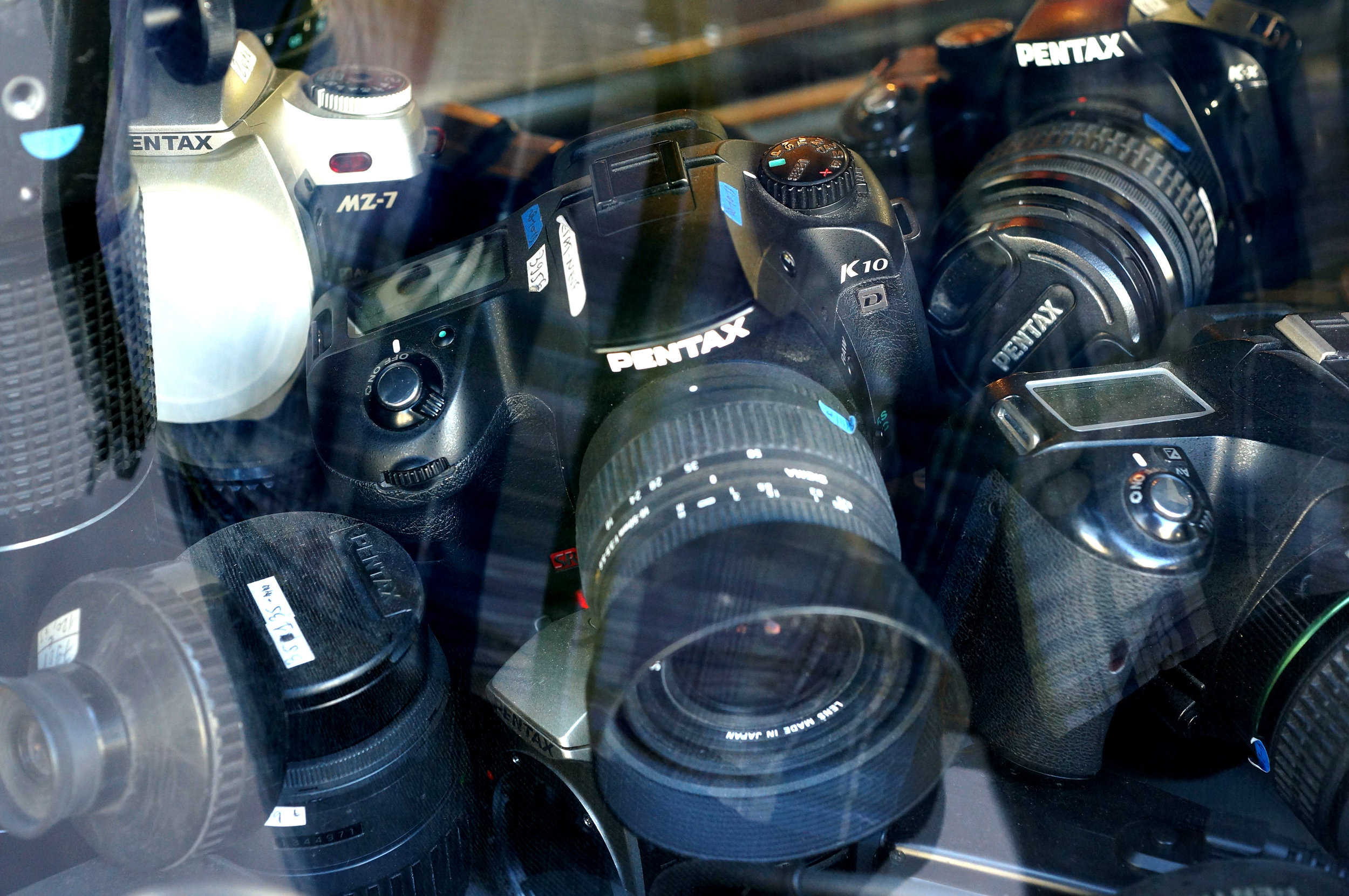One of the allures of film is that in its relative simplicity, there is supposed to be some tighter connection between the scene before the camera and the recorded image. The lens impartially draws on the film, and that’s it (not really, but let’s pretend). This stands in stark contrast to the computational photography creeping steadily into digital capture, particularly in the case of phones. All sorts of digital magic goes on behind the scenes: compositing images, automatic "best" selection, massive distortion correction, post-process background blur. It’s all very complicated, and if you’re of a certain mindset, it reduces the authenticity of the final image. The traditional camera, by contrast, is supposed to be more like a human eye, with its organic lens focusing light onto a retinal film and none of this digital trickery. What could be more perfect, more true, than the very organs with which we see? Would that it were so simple.
Things were simpler, better, before.
The dichotomy that sets the purity of film photography against the artifice of digital capture overlooks the fact that vision itself is a tremendously elaborate and notoriously unreliable example of computational imaging. What we “see” is disturbingly detached from the photons that hit our retinas (retinae?). It's dependent on the way our brains put together flickering nerve impulses as the eyeball saccades around the scene and melds multiple moments with preconceived schemas to form an illusion of continuous, coherent vision.
Consider the classic Harvard study in which subjects watched a video of people passing balls around. As they carefully tracked a ball, half the participants failed to notice the man in a gorilla suit who sauntered across the screen. So much for the reliable fidelity of our built-in cameras.
So the human eye is more an eye-Phone than a classic L-eye-ca (oh yes, I did that). But maybe it's film's divergence from the eye rather than any parallels that justifies our attachment to the impractical and antiquated. Human vision is complex and unreliable. Much like a smartphone, much like the world. And digital photography, which is as much about computers as optics, suffers from the fundamental opacity common to so much modern technology: nobody understands it.
No single body, I mean. As a product of humans, of course “we” understand it. But consider the thousands of minds, the millions of lines of proprietary code, that go into a smartphone. Could any one human really know, end to end, how the thing works? Of course, most people (myself included) don’t fully understand all the optical principles of a multi-element lens or the chemistry of light-sensitive emulsion, but we intuit that with some reading, a substantial but totally human amount of effort, we could. And this lets us feel more in tune with the technology, more aligned with it as we use it. It’s a tool, like a sharp stick, not magic. Magic, despite its appeal, has a dark side. They burned witches, you know. And they burned David Copperfield. Or if they haven’t yet, David, you better watch your back.
Digital natives performing strange rites. The smart ones may one day recognize the poison of convenience, the corruption of algorithms that presume to create an idealized memory of a fictional moment. Whose ideal? Whose moment? Get off my lawn.
Perhaps it's digital technology's transformation into a subjective, active partner in image making that's freshened analog photography's appeal. Digital, having largely achieved the goal of total fidelity that photography has aspired to since its inception, is now trying to out-think us. We want what we remember, or wish we remembered, whether it was there or not. This is how human vision and memory already work, after all -- the perpetual golden hour light of childhood afternoons half-cribbed from old movies, the moment when everyone laughed that never actually happened.
And to some extent, this is what all photography does. The moment of family bliss caught in the frame is what carries forward across the years: the sulking and hair-pulling that bracketed it are allowed to fade. But film, when you understand it, feels more dutiful, more reliable, perhaps more beautiful, with its opto-mechano-chemical process that affords no judgement in the moment. Once the shutter is tripped, a chain of events rooted in the physical world leads to an image hiding in the film emulsion, waiting for developer. It's magic, but it's a small, predictable magic. Nothing you're likely to burn for.




